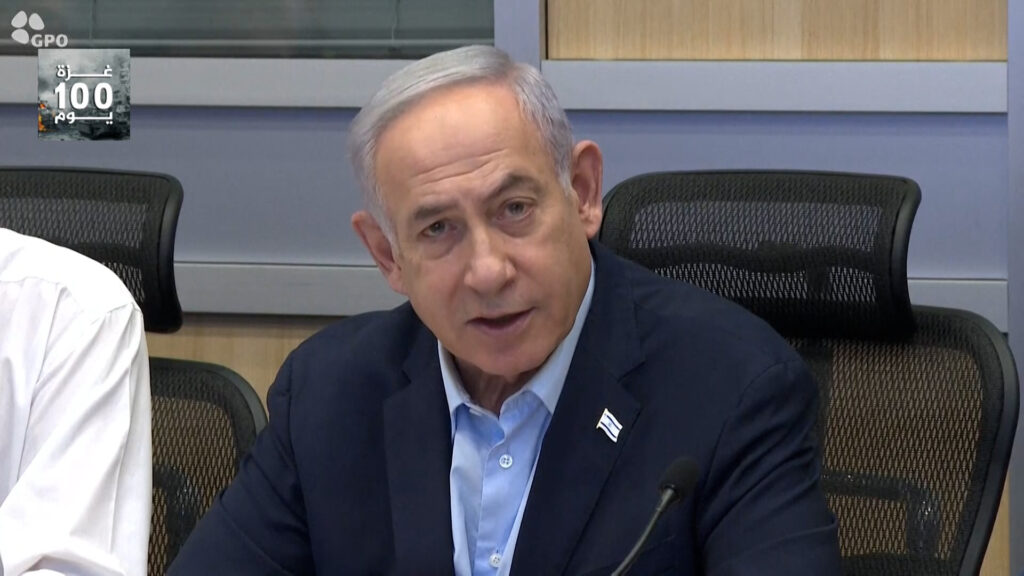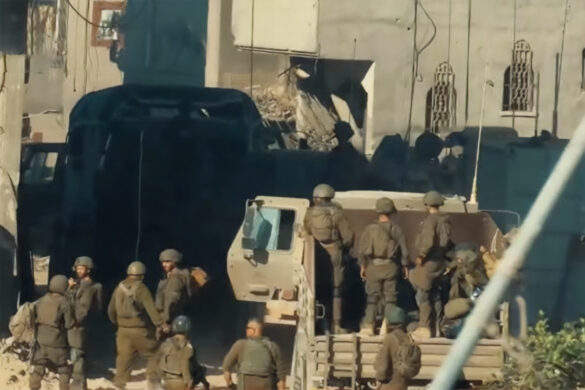The participation of Israeli Defense Minister Benny Gantz in a mass demonstration in Tel Aviv opposing the government and attacking its handling of the issue of Israeli prisoners in Gaza sparked; There are many questions about the cohesion of the Israeli government, 100 days after the war launched by Israel on the Gaza Strip.
Gantz’s participation in today’s counter-demonstration comes after his joining the emergency government formed by Israeli Prime Minister Benjamin Netanyahu after October 7 constituted a major impetus for the Tel Aviv government, according to observers, especially since he was one of the most prominent opponents of Netanyahu.
However, reports revealed that the following 100 days witnessed the eruption of sharp disputes. Rather, there are conflicts within the emergency government and the war council, as Gantz’s participation in the demonstration seemed to coincide and fit with reports of quarrels within the war council, as Netanyahu prevented the director of the Defense Minister’s office, Yoav Gallant, from attending Friday’s session, which angered Gallant and prompted him to accuse Netanyahu of disrupting his work, and he withdrew from the session. The session lasts for an hour before returning later. According to observers, this is considered an unprecedented success, especially during times of war.
A report for Tel Aviv Tribune, prepared by Walid Al-Attar, referred to recent press reports about a verbal clash that occurred a week ago between Minister Gallant and Minister of National Security Itamar Ben Gvir, to which Transportation Minister Miri Regev responded with harsh sarcasm as she took out a bag of “popcorn,” saying: “I… “The play has begun.”
In the context of the disputes plaguing the Israeli government, observers and the media are talking about the harsh attack on Chief of Staff Herzi Halevy by far-right ministers due to the formation of a committee to investigate what happened on the morning of October 7.
The sharp disagreements and blurry vision are centered around the issue of prisoners and the post-war file, which is the title that alone sparked more than one War Council session and prevented it from being held, according to observers, in addition to positions that have become remarkably repeated and are accompanied by accusations against Netanyahu that they were of his own arrangement, accompanied by the question: Why does he allow the attack? Who were the leaders of his army during wartime?
According to political analysts; There is a widespread belief that Netanyahu is running this war for personal political motives, and his opponents accuse him not only of failing to achieve any of its goals, but also of being a hostage of far-right ministers whose presence he buys at all costs so that the government, whose popularity polls indicate a decline, does not collapse.




